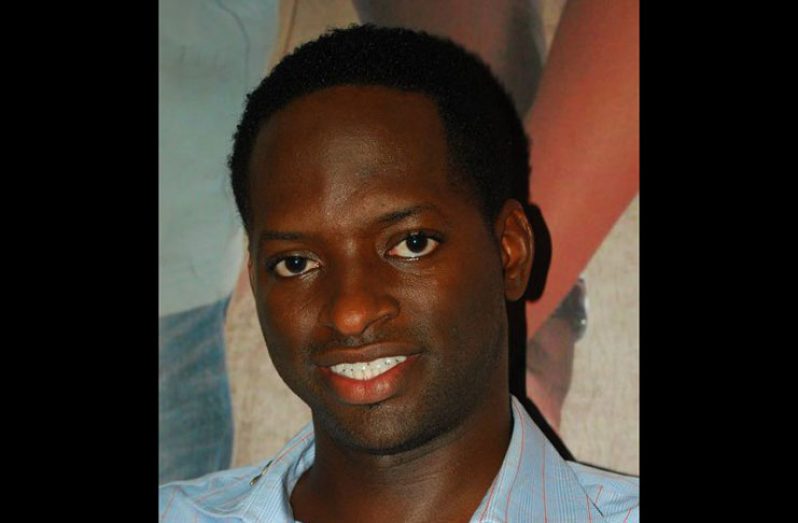THIRTY-six-year-old Queenie (not real name) sits on a culvert on Hadfield Street, in central Georgetown, just as she does every Saturday night. Her burgundy handbag is full of condoms and her make-up is just right – not too heavy, not too light, for, as she says, she’s “not a teenager anymore.” Nearby, middle-aged men with faces reddened by the glowing street lights prowl around like vultures stalking their prey. On any other night, the veteran transgender sex worker might have been among their targets. But tonight the only thing she will be offering is advice and condoms to her fellow sex workers who arguably comprise the most vulnerable group in Guyana.
The 2014 Guyana Bio-Behavioural Surveillance Survey (BBSS) reveals that the HIV prevalence among transgender sex workers was 10.39 per cent, while the United Nations Programme on HIV/AIDS (UNAIDS) reports that female sex workers are disproportionally affected by HIV, with a prevalence of around 16 per cent, compared to an adult prevalence in Guyana of 1.2 per cent.
Nineteen-year-old Mandy (not her real name) comes by to see her. They greet with a hug, and after a quick catch-up, Queenie reminds the younger woman to use protection.
“She’s working tonight so I know she doesn’t have much time to talk,” she explains. Soon, others begin to trickle by. Many of them are boys, as young as 15, and Queenie’s condoms quickly disappear into their pockets.
According to the BBSS, which was published by the National AIDS Programme Secretariat, there are about 401 known transgenders who socialize openly in Guyana. There are no statistics on how many of them are sex workers. However, sex work, which is among the oldest profession in human history, is illegal in Guyana.
Queenie explains that it is common for transgender sex workers to be treated in a discriminatory manner, at and by State institutions because of archaic laws.
Having been a victim of this type of oppression when she was younger, the sex worker has committed herself to helping not only sex workers, but members of the Lesbian, Gay, Bi-sexual and Transgender (LGBT) community avoid having to depend on state institutions for help.
“Most of them are made fun of, looked down upon, and are even refused basic welfare services by these institutions because of their sexual orientation and gender identity,” she laments.
The heart-rending story of Patrice (not real name), who is a transgender, is testimony to this. A victim of interpersonal violence, Patrice relates that she has been made a “mocking stock” more times than she could count, by police officers and medical personnel.
Her story is one of routine abuse by her sexual partner who, at one time attempted to stab her with a pair of scissors in public. She remembers noticing bystanders who were not moved by what they were witnessing.
“People were just looking and nobody was doing anything,” she says, adding that it was a popular journalist who came to her rescue and relieved her then partner of the weapon.
MADE FUN OF
The abused woman then made her way to the Alberttown Police Station where she was “discriminated against and made fun of” after revealing her “male name” to the officer who was taking the report.
As if things couldn’t get worse, she then visited the Georgetown Public Hospital Corporation (GPHC) for medical attention, but, was once again discriminated against because of her gender identity.
“This was nothing new though because at all the police stations I visited, I was made fun of,” she explains.
Interestingly though, it is not only those who seek assistance from these institutions that face discrimination, but even those who attempt to offer assistance through these institutions.
Twenty-one-year-old Akola Thompson has tested these waters.
Just recently, the mother of one who identifies as bi-sexual was prevented from donating blood because of her sexual orientation. Four years ago, she donated blood at the blood bank which graciously accepted it after quizzing her thoroughly.
Fast-forward to 2017 and Thompson was again faced with the same questions. This time however, she admitted that she was involved in same-sex relations, which unfortunately disqualified her from being a blood donor.
“The person [at the blood bank] asked questions which I expected, but then she asked me if I ever had same-sex relations and I said ‘yes’, and she said ‘sorry’ she couldn’t accept the blood because they have a policy against it,” she reveals.

Acting Director of the Blood Bank, Dr. Pedro Lewis, when asked if there was such a policy, responded in the negative, explaining that an individual would only be deferred if they had multiple sexual partners within the last 12 months.
But Managing Director of SASOD, Joel Simpson disagrees with Dr. Lewis.
Simpson, who has been at the forefront in the fight for LGBT rights, shares that when attempting to donate blood, persons are specifically asked if they engage in same-sex relations. Thompson again joins in, adding that a friend of hers was asked that specific question as recent as two weeks ago, and denied the opportunity to donate blood.
‘EXTREMELY DISAPPOINTED’
Speaking about her experience, the young mother said she was “extremely disappointed” to learn that such a policy exist, for the simple fact that she could have simply said she was “straight” and approval would have been granted for her to donate blood.
“There are stereotypes attached to having a different sexual orientation. People think that because you have a different orientation, you are morally loose,” Thompson decries.
Similarly, in the legal arena, LGBT advocates are battling to have what they consider “discriminatory” cross-dressing laws struck down.
Presently the law allows for cross-dressing once not done for an “improper purpose”. However, the technicality in what constitutes “improper” allows for discrimination to continue at the discretion of the perpetrator, Simpson says.
It was only last week that SASOD and the Guyana Trans United (GTU) wrote to Chancellor of the Judiciary, Justice Carl Singh, concerning the actions of City Magistrate Dylon Bess, who on multiple occasions, barred transgender women, denying recognition of their gender identity in his court.
The “improper purpose” proviso is currently subject to an appeal made by representatives of the LGBT community seeking clarity on what it means. A ruling is expected to be made today by Justice Carl Singh, acting Chief Justice Yonette Cummings-Edwards, and Justice Brassington Reynolds.
TOP DOWN APPROACH
To eradicate state discrimination against persons who identify as members of the LGBT community, Simpson believes that there needs to be a ‘top-down’ approach, where the laws are amended to protect these individuals.
SASOD is calling for an amendment to the Prevention of Discrimination Act (1997), to include “sexual orientation and gender identity” as grounds for discrimination. The inclusion of “sexual orientation” into the act will protect persons who identify as lesbian, gay and bi-sexual, while “gender identity” will protect transgender persons.
Prohibited grounds for discrimination according to the law in its present form are: “race, sex, religion, colour, ethnic origin, indigenous population, national extraction, social origin, economic status, political opinion, disability, family responsibilities, pregnancy, marital status or age…”
Additionally, the human rights group is calling for an amendment to the Non-discrimination clause in Article 149 (2) of the Constitution. In this article, Simpson again notes that the words “sexual orientation and gender identity” are missing, which allows for discrimination of persons who fall within those groups.
The Managing Director of SASOD explains that these are laws which sanction discrimination and the exclusion of those groups allow for persons to be discriminated against, with no legal recourse.
He offers that inclusion of those two groups into the law will allow for two things; firstly, for persons to be punished if they discriminate on the basis of sexual orientation and or gender identity; and secondly it will act as a deterrent for persons who discriminates against persons in the LGBT community.
“Unfortunately, discrimination happens in every sector of the lives of LGBT persons. It happens in the workplace, in social settings, in the medical field, in housing, and so on. When you leave discriminatory laws, as is happening now, it will continue to happen. And what is interesting to note is that LGBT is the only group that faces discrimination in the law” he laments.
Meanwhile, President David Granger, has since expressed his support for freedom of choice by LGBT persons in Guyana. On December 31, 2015, the President during his weekly media briefing, “The Public Interest,” said that “I am prepared to respect the rights of any adult to indulge in any practice which is not harmful to others.”
With no action taken by the administration since then, SASOD has issued several calls for the Government to put its words into action.
“While the word of the President is a step in the right direction, it is just words. It is unacceptable for the Government to say they do not discriminate and no efforts are being made to change these discriminatory laws” the managing director of SASOD contends.




.png)










1 thought on “Navigating discrimination : LGBT community urges stronger State support”
Soliciting clients for sex is against the law. In the good old days prostitutes who operated around the Baltics — America Street area -0 were rounded up and kept at the Brickdam Female lockups ( located under the Male Barrack rooms and next to the Armoury) and released early Monday Mornings. What is happening is very sickening.